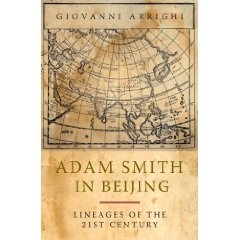
REVIEW (Guest) by By Malvin

REVIEW (Guest) by By Malvin
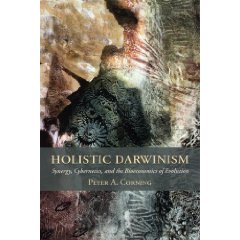
![]() Beyond 6 Stars–And a Seventh for Accessible Pricing
Beyond 6 Stars–And a Seventh for Accessible Pricing
Bottom line: Humanity can evolve, must evolve, and the Whole Earth, Co-Evolution concepts that Stewart Brand and others pioneered (not mentioned here), that indigenous people's everywhere have understood for centuries, are a natural path for us all. We *can* create a prosperous world at peace.
Short version of the book: Synergy is cool again, synergy and self-organization complement each other and are distinct; bioeconomics is hugely important and supports the premise that the whole is larger than the sum of the parts and that interactions and exchanges can and should be done for the whole, “beyond selfishness,” cybernetics rules, information is the space between, and ethics is both a form of cybernetics and a cultural adaptation that helps the whole evolve and persist.
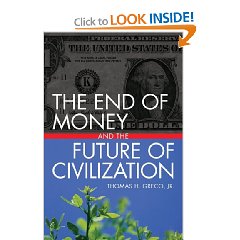
EXTRACTS from A Book Review by Richard C. Cook (FREE VERMONT MEDIA)
It’s too late for anyone to pretend that the U.S. government, whether under President Barack Obama or anyone else, can divert our nation from long-term economic decline. The U.S. is increasingly in a state of political, economic, and moral paralysis, caught as it were between the “rock” of protracted recession and the “hard place” of terminal government debt.
. . . . . . .
Thomas Greco, in his new book The End of Money and the Future of Civilization (Chelsea Green: 2009) , outlines the increasingly familiar story of how things got so bad, and he tells it as well as anyone has ever done. His style is precise and sometimes academic. Behind it, though, is a passion for truth and the type of rock-solid integrity that refuses to sugar-coat a very bitter pill.
More than that, Greco writes about how to change what has gone wrong. His credentials as an engineer, college professor, author, and consultant are impeccable. His book is among the most important written in this decade. It is truly a book that can alter the world and, if taken seriously, give large numbers of people a practical way to survive the gathering catastrophe.
Continue reading “Review: The End of Money and the Future of Civilization”
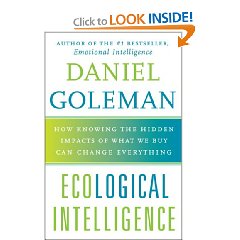
![]() From 4 to Five for Gifted Story and Amazon Price Cut
From 4 to Five for Gifted Story and Amazon Price Cut
The author's “big idea” is called “Radical Transparency,” what the rest of us have been calling “Open Books for decades. I like it, and in the context of his elegant story-telling, I buy in. This book also goes to a five because it is an Information Operations (IO) books, ably focused on data, information, and information-sharing as well as collective sense-making. He author anticipates most of us becoming “active agents” for change, armed with information as Thomas Jefferson understood so well.
CORE NUGGET: Life Cycle Assessment (LCA) is not done for most things, but when done right, it is mainly data and it tracks impacts on human health, ecosystems, climate change, and resource draw-down, for every single component and every single process including transport, packaging, etcetera. Toward the end of the book when the author talks about how an LCA commons is emerging, and quotes Andy Ruben of normally ultra-evil Wal-Mart as saying that LCA innovation “is the largest strategic opportunity companies will see for the next fifty years,” I am seriously impressed.
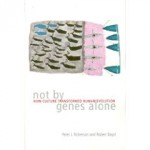
Both Wright and these authors acknowledge Richard Dawkins and The Selfish Gene: 30th Anniversary Edition–with a new Introduction by the Author as being instrumental in getting the academy to think new thoughts.
However, and despite other's averaging a four, I feel such a sense of respect for what these two authors have done (with a superb bilbiography and a good index) that I cannot qualify this with less than five stars.
The two nuggets for me, with my interest in Epoch B leadership and self-organizing communities, came at the end:
Continue reading “Review: Not by Genes Alone: How Culture Transformed Human Evolution”
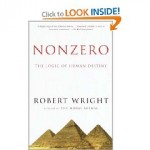
QUOTE: “Non-zero-sumness is a kind of potential–a potential for overall gain, or for overall loss, depending on how the game is played.”
This book is one of the most sophisticated, deep, documented, and influential I have ever read, right up there with Consilience: The Unity of Knowledge. Published in 2000, this book has NOT received the marketing promotion or the public attention it merits.
THIS BOOK HAS SUBSTANTIALLY ALTERED MY PERCEPTION OF EVERYTHING ELSE.
Continue reading “Review: Nonzero–The Logic of Human Destiny”
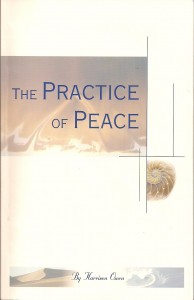
This book needs to be re-issued. It is a perfect complement to Tom Atlee's forthcoming Refelctions on Evolutionary Activism (Tom is the author of The Tao of Democracy: Using Co-Intelligence to Create a World That Works for All–read my review of EA at Phi Beta Iota, the Public Intelligence Blog.]
Although I knew the author was the founder of the Open Space Technology (OST) process, and recommend his book Open Space Technology: A User's Guide, I learn in this book that the other essential reader is his earlier book, The Power of Spirit: How Organizations Transform.
This book does something I was not expecting: it directly relates, in a tight DNA-like spiral, the use of open space technology (process is really a better word) to the practice of peace. This is not a book on Quakerism–the author has made an original contribution that has moved me further down the road toward Evolutionary Activism (focus on connecting all humans to all information, not on arriving as specific answers)-but I better understand the value of such books as Practicing Peace: A Devotional Walk Through the Quaker Tradition as a result of this reading.
ALSO unexpected, I found this book to be a handbook for a “Whole Systems” approach to peace and prosperity. The author writes of “Multi-Factorial Development” attempting to do that, but i have the margin notation that putting a bunch of singular discipline experts (one from each discipline) in a room together does not create in any of them the ability to *do* systems thinking (or sustainable design). See Critical Path and The Philosophy of Sustainable Design.